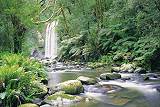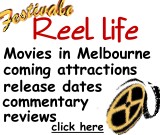Spring 2015
Writing the End of the World
The world is in ruins and cities burn. Swarms of zombies stalk the land. Solar flares burn the planet to a cinder. An asteroid falls to the earth. Nuclear holocaust turns the world into a radiated wasteland. A super-virus sweeps the globe, wiping out humanity. A fleet of alien spaceships invades, intending to wipe us out. And then the next series of The X-Factor is announced. The horror of it all. It's enough to give you nightmares.

The concept of the apocalypse both terrifies and fascinates us. Writers have used this ambivalence as fodder over the years, all the way from the ancient Babylonians to Mary Shelley's The Last Man in 1826, and on to Richard Matheson's I Am Legend to Stephen King's The Stand, and beyond with David Moody's Straight to You and Justin Cronin's The Passage. Apocalyptic fiction still abides while other sub-genres fall by the wayside and pass in and out of fashion.

What is it about the mere thought of the apocalypse that stirs such emotive responses in people, and in particular, readers and writers? Is it the wish-fulfilment of being the sole survivor of some horrendous event and the chance to do whatever you want now that there are no rules to play by, no bills to pay, and no social standards to observe? Some would find that liberating. A giant sandbox to play in. No more regulations. No more health and safety rules.
Would you want to be present at the extinction of the human race? Or would you want to be the sole survivor, the last custodian of the planet? And who would want to be that final person who gets to turn off the lights when it's all done? I think about these things frequently, especially as most of my work tends towards the apocalyptic/post-apocalyptic subgenre.

Does that make me a little strange? Probably. Do I ask too many questions? Indeed.
We tend to romanticize the apocalypse in all its forms. This is especially true with writers. I'm guilty of it. I think we have to, in a way, because to expose yourself to such jaunty subjects as mass extinction, runaway climate change, the destruction of the environment, and uber-pandemics on a regular basis does risk nihilism and depression, and that can put you right off your dinner.
Although apocalyptic fiction has always been fairly popular, its resurgence in the last decade or so has permeated mainstream culture, partly due to the resurrection of zombie fiction since the early Noughties. Also, I think, it's because we live in turbulent times full of religious extremism, financial collapses, severe weather, rampant poverty and inequality, a changing climate, and the growing gap between the 1% and the rest of us. We're living in the midst of strange days, and maybe there's some relief in reading about the end of all things in this world.

Perhaps apocalyptic fiction is so popular because it can show us human nature at its most savage, boiled down to base instincts where survival in a worldwide disaster is all that's left to hope for. Look to David Moody's epic Hater trilogy or Conrad Williams' superb One for great examples of this. Strip away all the niceties of civilised society and what is left? Show what happens to people when they're scared and in the dark, there's no internet and the supermarkets have all been looted clean. It's powerful stuff, and it's been mined greatly in apocalyptic fiction over the last few years.
I've asked myself many times why I write stories about the end of the world, and the answer is always one of the above, but there's something else too. There's something about the possible destruction of our species, of our history, technology and culture that unsettles me in a way that other subgenres of horror and sci-fi cannot. We live on nothing more than a pale blue dot in the endless dark, and one day we'll just be another extinct species lost to deep time. I find those facts greatly terrifying and, at the same time, awe-inspiring, so writing apocalyptic fiction is my way of dealing with these feelings. It's an urge to write. It must be done.
I should probably get back to working on the novel. Best to finish it while I can, in case there's an asteroid heading our way. There may not be much time left...

Rich Hawkins, horror writer and loveable rascal can be found blogging, where he...uh, blog about horror, writing, novels, films and all sorts of horror-related malarkey. This is a sparkle-free zone.
Blog: Sentient Meat
Facebook: https://www.facebook.com/rich.hawkins.98
See also in this series:
The Immortal Enduring Vampire by Rhiannon Frater
Get Ready Cyberfunkers: Black Science Fiction by K. Ceres Wright
Defining Horror by Jeani Rector
Steampunk: A Marvellous Excursion by Michael Pryor
Female Private Eyes in Fiction: From Lady Detectives to Hard-Boiled Dames by Colleen Collins
The Good, the Bad and the Ugly: Western Writing by Julia Robb
Grand Tradition Science Fiction: Stories that Want to Have Fun, by Bascomb James
Unintended Invention: The Fantasy of Manners, by Ellen Kushner
For posts about Melbourne events, places, news, reviews, giveaways, see our Facebook Page:






 Published in Melbourne, Victoria, Australia
Published in Melbourne, Victoria, Australia